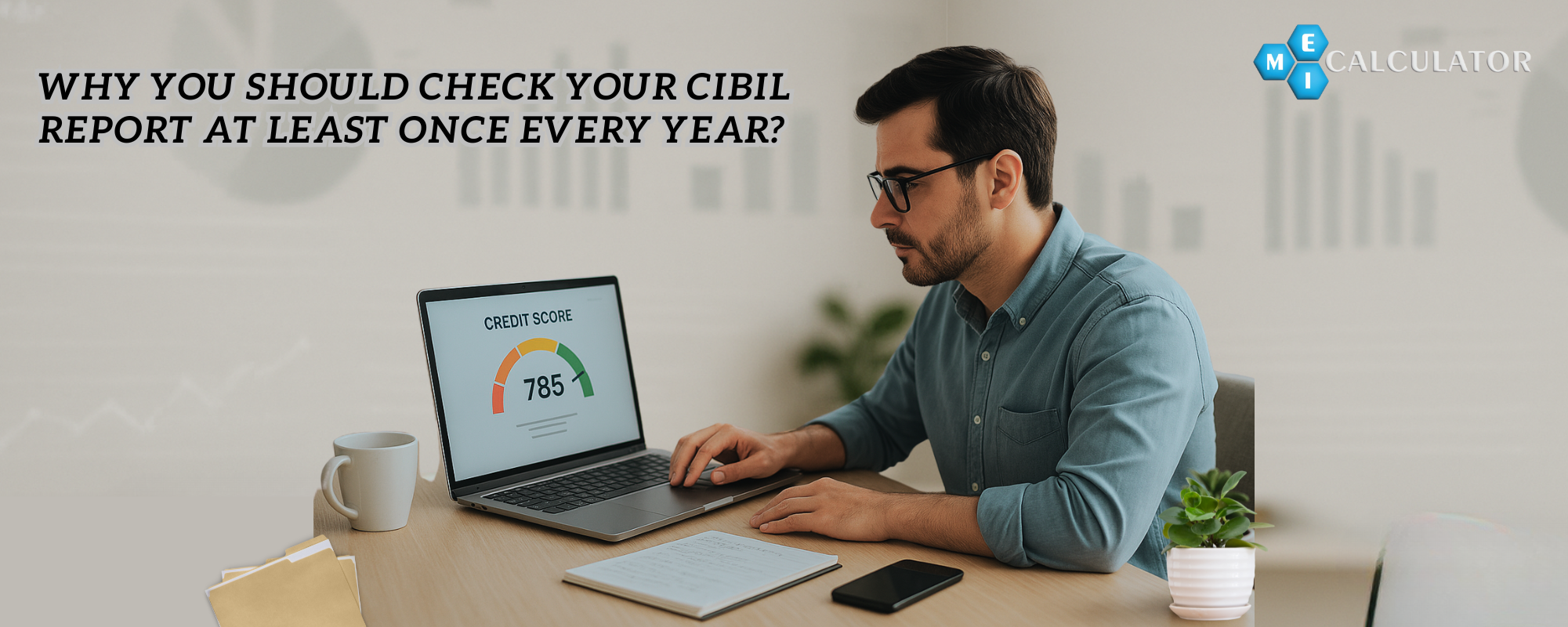
Just like your physical health, your financial well-being requires consistent attention, and your credit report plays a central role in it. Unfortunately, many borrowers overlook this essential aspect of financial planning. By reviewing your credit report at least once a year, you can monitor your creditworthiness, track your repayment habits, and stay prepared for any future borrowing needs.
Let’s explore why making credit report checks a part of your annual financial routine is crucial.
A credit report is a complete summary of your financial behavior, compiled by credit bureaus such as TransUnion, Experian, Equifax, or CRIF High Mark. It includes your borrowing history, repayment patterns, outstanding debts, current and closed credit accounts, and previous credit inquiries.
Whenever you apply for a home loan, personal loan, or a credit card, lenders carefully evaluate your credit report to assess your repayment capability. A positive credit history enhances your chances of securing loans with lower interest rates and favorable terms.
👉 Related Read: Impact of RBI Repo Rate Changes on Your Home Loan EMIs
Your credit score—typically ranging between 300 and 900—is derived from the information in your credit report. A score above 750 is generally seen as excellent, opening doors to better loan offers and faster approvals.
With tools like our Home Loan EMI Calculator, you can analyze how your credit score influences your EMI payments. A good score not only helps lower your monthly installments but can also get you a competitive interest rates.
By reviewing your credit report regularly, you ensure your score truly reflects your credit management habits and financial responsibility.
Inaccuracies in your credit report can unknowingly damage your credit score. Errors may include:
Such discrepancies can lower your loan eligibility, resulting in:
Conducting an annual review allows you to raise disputes promptly and correct errors before they impact your home loan eligibility or any other credit application.
Keeping a close watch on your credit report helps in detecting identity theft before it causes major harm. If fraudsters misuse your personal information to obtain unauthorized credit, these transactions will reflect in your report.
With regular monitoring, you can detect any red flags promptly and take steps to secure your credit profile.
Under Reserve Bank of India (RBI) guidelines, every individual is entitled to one free credit report per year from each credit bureau. Accessing your report requires only a few basic details such as your PAN, date of birth, and contact information.
While annual checks are recommended, certain situations demand a more frequent review:
If you’re considering a home loan refinance, especially after changes in the RBI repo rate, checking your credit report is highly advisable.
If you spot inaccuracies in your credit report, you have multiple reliable options to correct them efficiently:
1️⃣ Credit Repair Companies & Credit Counseling Agencies
These professional services specialize in:
⚠️ Be Cautious:
Verify that any vendor is RBI-compliant and does not ask for sensitive personal details upfront.
2️⃣ Credit Health Services Offered by Banks & NBFCs
Many leading banks and NBFCs provide value-added credit improvement and monitoring services for their customers, including:
These institutions often have direct partnerships with credit bureaus, which can sometimes lead to quicker dispute resolution and expert assistance.
3️⃣ Direct Credit Bureau Dispute Resolution
You also have the option to resolve disputes directly with the credit bureaus, which is often simple and free:
Lenders use your credit score as a key element while evaluating:
For example, if you’re using our Home Loan Calculator to explore refinancing options, a high credit score can immensely improve your ability to negotiate better terms with new lenders after changes in the RBI repo rate.
👉 Use our Personal Loan EMI Calculator to estimate how regular payments can maintain a healthy credit profile.
In the current dynamic financial landscape, where the RBI often revises the repo rate–your credit report has become an essential factor in accessing the best borrowing opportunities. Regularly checking your credit report is a prescient way to keep a healthy credit score and address any concerns early on. Maintaining a good credit profile makes it easier to get loans approved, access lower interest rates, and manage your finances with greater ease. Take charge now to build a secure and financially stable future.
Before planning your loan, make sure your credit report is accurate and up to date.
👉 Check Your Credit Report Now to ensure you’re eligible for the best loan terms.
1 Comment
Himanshu Yadav
“This is such an important reminder! Regularly reviewing your credit report helps catch errors early, spot signs of identity theft, and stay on top of your financial health. It’s amazing how a simple yearly check can make such a big difference in maintaining strong credit and planning for the future.